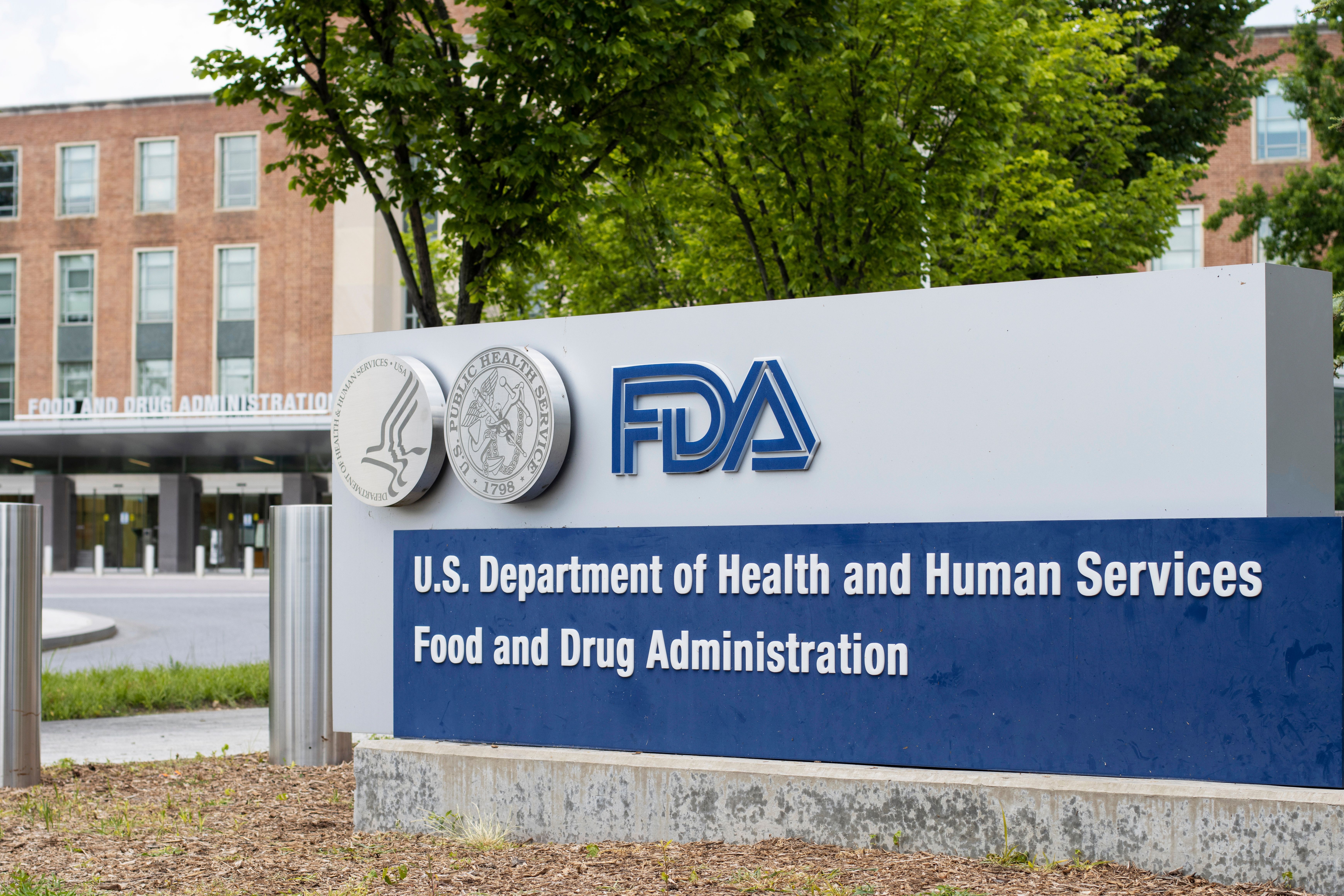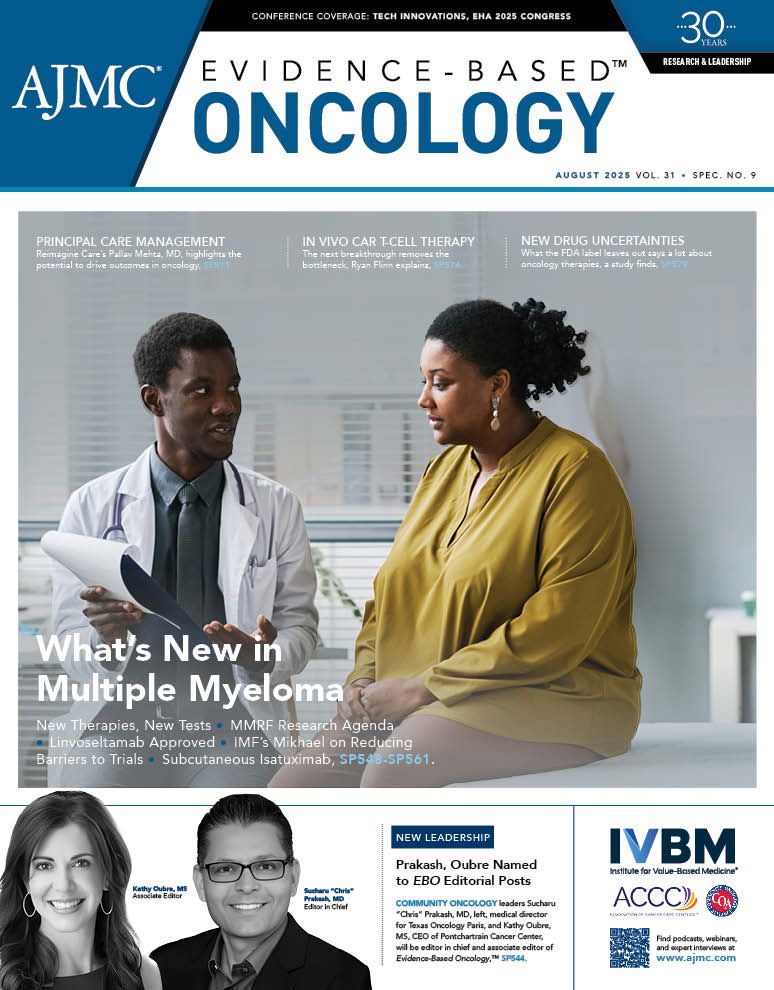- Center on Health Equity & Access
- Clinical
- Health Care Cost
- Health Care Delivery
- Insurance
- Policy
- Technology
- Value-Based Care
FDA Expands Access to Approved CAR T-Cell Therapies by Eliminating REMS
The FDA has removed Risk Evaluation and Mitigation Strategies (REMS) for approved chimeric antigen receptor (CAR) T-cell therapies for hematologic malignancies, aiming to ease provider burden and expand patient access.
In a move expected to expand access and reduce provider burden, the FDA has eliminated Risk Evaluation and Mitigation Strategies (REMS) requirements for all currently approved B-cell maturation antigen (BCMA)– and CD19-directed autologous chimeric antigen receptor (CAR) T-cell therapies used to treat hematologic malignancies, including multiple myeloma and select types of leukemia and lymphoma.1
The FDA has removed Risk Evaluation and Mitigation Strategies (REMS) for approved chimeric antigen receptor (CAR) T-cell therapies for hematologic malignancies, aiming to ease provider burden and expand patient access. | Image Credit: Tada Images - stock.adobe.com

REMS programs are typically required for medications with serious safety concerns to ensure that their benefits outweigh the risks. However, the FDA has determined that REMS are no longer necessary for the following therapies:
- Idecabtagene vicleucel (Abecma; Bristol Myers Squibb)
- Lisocabtagene maraleucel (Breyanzi; Juno Therapeutics, Inc)
- Ciltacabtagene autoleucel (Carvykti; Janssen Biotech, Inc)
- Tisagenlecleucel (Kymriah; Novartis Pharmaceuticals Corporation)
- Brexucabtagene autoleucel (Tecartus; Kite Pharma, Inc)
- Axibcabtagene ciloleucel (Yescarta; Kite Pharma, Inc)
According to the agency, serious risks associated with these therapies, such as cytokine release syndrome and neurological toxicities, are already sufficiently communicated through boxed warnings, product labeling, and medication guides.
With this change, hospitals and associated clinics are no longer required to be specially certified or to maintain on-site, immediate access to tocilizumab (Actemra; Genentech). Patients are also no longer required to remain within 2 hours of a certified center for at least 4 weeks after infusion; this was a previous logistical burden that often required them to obtain temporary housing.2
Patients now only need to remain near the treatment site for 2 weeks, according to a Bristol Myers Squibb news release.3 Additionally, the FDA reduced posttreatment driving restrictions from 8 weeks to 2 weeks.
“REMS is a useful safety system, but reevaluation over time helps inform whether a REMS is still needed to ensure that the benefits of a product outweigh its risks,” Vinay Prasad, MD, MPH, the FDA’s chief medical and scientific officer and director of the Center for Biologics Evaluation and Research, said in a press release.1 “Eliminating the REMS that is no longer needed also expedites the delivery of potentially curative treatments to patients and reduces burden on providers.”
This decision builds on a 2024 REMS revision that aimed to reduce strain on the health care system by removing requirements for training materials and adverse event reporting.4 However, it still required site certification and on-site availability of at least 2 doses of tocilizumab before infusion.
While the latest update expands patient access, the FDA will continue to require manufacturers of the respective therapies to conduct postmarketing observational safety studies to assess long-term safety and the risk of secondary malignancies for 15 years following treatment.1
“Physicians and institutions now have greater experience identifying and managing toxicities with the currently approved CAR T products,” Richard Pazdur, MD, director of the FDA’s Oncology Center of Excellence, said in a press release. “This approach will potentially facilitate patient access to these treatments while continuing to prioritize safety.”
References
- FDA eliminates Risk Evaluation and Mitigation Strategies (REMS) for autologous chimeric antigen receptor CAR T-cell immunotherapies. News release. FDA; June 27, 2025. Accessed June 30, 2025. https://www.fda.gov/news-events/press-announcements/fda-eliminates-risk-evaluation-and-mitigation-strategies-rems-autologous-chimeric-antigen-receptor
- Buie LW. Balancing the CAR T: perspectives on efficacy and safety of CAR T-cell therapy in hematologic malignancies. Am J Manag Care. 2021;27(Suppl 13):S243-S252. doi:10.37765/ajmc.2021.88736
- US Food and Drug Administration approves streamlined patient monitoring requirements and removal of REMS programs within Bristol Myers Squibb’s cell therapy labels. News release. Bristol Myers Squibb; June 26, 2025. Accessed June 30, 2025. https://news.bms.com/news/corporate-financial/2025/U-S--Food-and-Drug-Administration-Approves-Streamlined-Patient-Monitoring-Requirements-and-Removal-of-REMS-Programs-within-Bristol-Myers-Squibbs-Cell-Therapy-Labels/default.aspx
- Risk Evaluation and Mitigation Strategies (REMS) for autologous chimeric antigen receptor (CAR) T-cell immunotherapies modified to minimize burden on healthcare delivery system. News release. FDA; June 26, 2024. Accessed June 30, 2025. https://www.fda.gov/vaccines-blood-biologics/safety-availability-biologics/risk-evaluation-and-mitigation-strategies-rems-autologous-chimeric-antigen-receptor-car-t-cell

Quality of Life: The Pending Outcome in Idiopathic Pulmonary Fibrosis
February 6th 2026Because evidence gaps in idiopathic pulmonary fibrosis research hinder demonstration of antifibrotic therapies’ impact on patient quality of life (QOL), integrating validated health-related QOL measures into trials is urgently needed.
Read More
